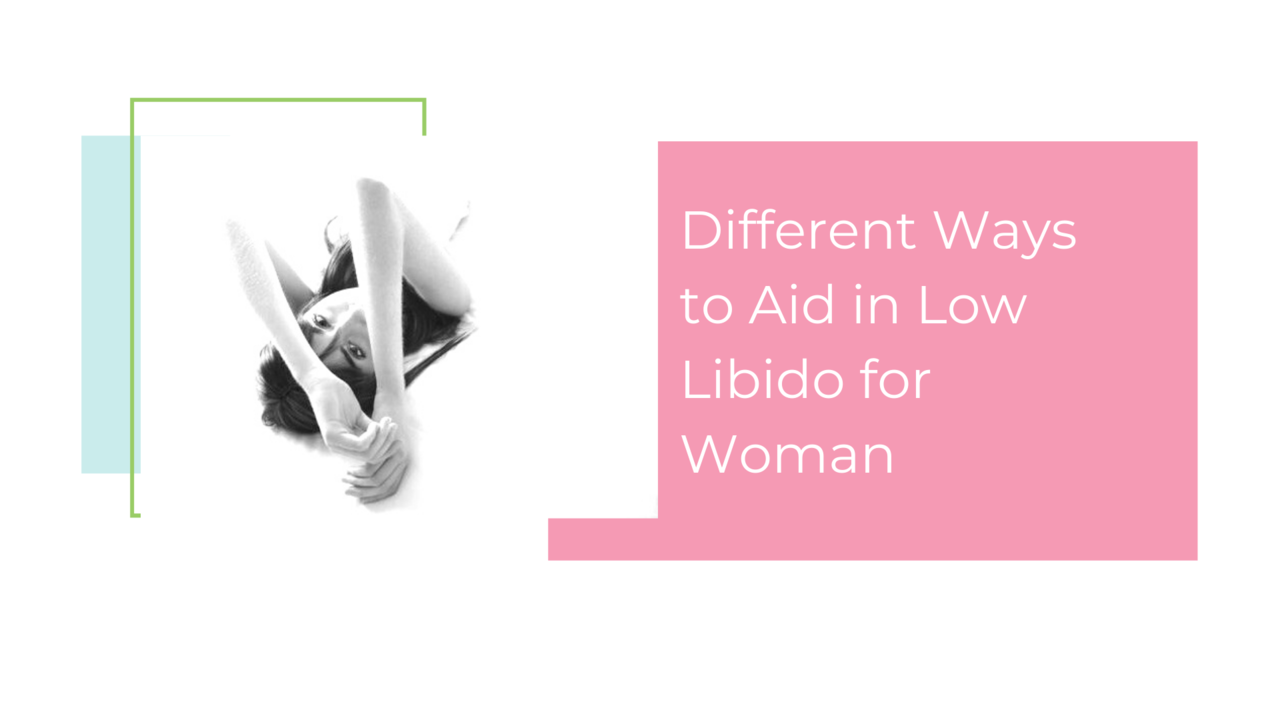
Different Ways to Aid in Low Libido for Women
Dec 13, 2019A decreased libido in women can be a result of various things, and it’s not uncommon for a woman to experience low libido at some point in her life. A low sex drive can be caused by changes in hormones, stress, psychological attributes, relationship issues, and more. However, if you are experiencing a low desire for sex, you aren’t alone and there are a number of solutions that may be able to help!
Talk To Your Partner
If you’re currently dating someone or married, it’s a good idea to start by having an open discussion about your low libido with them. One of the strongest factors that affect a woman’s sex drive is the healthiness and stability of her relationship. If there are unresolved issues with your partner, power imbalances, and/or infidelity, it can make you resent them, and can, therefore, attribute to your low desire for sex with them.
If none of these factors are the case in your relationship, it’s still important to talk with your partner about how you’re feeling and what you’re experiencing. It’s extremely healthy to have open communication around your sex life and to be honest. By communicating and creating a better connection mentally, you’ll position yourself better to create a physical intimacy.
Exercise
Now you may be thinking, how could exercising increase my sex drive? Regular exercise helps boost your heart rate, improve your stamina, lighten your mood, and enhance your overall self-image. When we feel good about ourselves, both mentally and physically, it can do wonders for our libido.
Try exercises like pilates or tantra yoga to help you focus on your body more closely. Exercises like these will make you stronger and help reduce stress in addition. Incorporate regular exercise about five days a week to see a positive shift in both your mind and body.
Limit Stress
Trying to ease the amount of stress in your daily life is easier said than done. However, there are several realistic changes you can start making in order to help. If you’re someone in a high-stress profession or seem to spend all your time taking care of other people, it’s time to take a step back and think about yourself for once. It’s essential that you don’t over-commit to things that aren’t mandatory or necessary in your life. Don’t be afraid to say no to plans if you need a break.
If you find yourself often doing things that you’d rather not be doing, it’s important to evaluate what you can cut out. If it’s not mandatory or if it’s bringing you a copious amount of stress, stop doing it. Your health and well-being should come first before all else. It’s also important to find a healthy way to cope when you’re feeling overwhelmed. Everyone is different, and stress can affect the body in a variety of ways, but there are plenty of things to try doing when you’re feeling stressed out.
Medications
For some women, low sex drive can have a deeper underlying meaning. Sexual dysfunction happens when there are repeated instances of sexual pain, lack of response, and inability to orgasm. However, just because you are experiencing this does not mean that you are alone or that it’s permanent. Forty-three percent of women have reported experiencing sexual dysfunction, while thirty-one percent of men have reported the same.
If you feel you’ve exhausted all options, and your doctors agree this is the best option for you, there are medications out there that can help. Medications such as Addyi, the first FDA approved treatment for menopausal women, can help boost your libido. There are also hormone therapy and pelvic physical therapy treatment options that we’ll get into further detail below!
Hormone Therapy
An underlying reason for your low sex drive could be due to vaginal atrophy, which causes drying and shrinking of the vagina. This can make sex incredibly uncomfortable and therefore, be a contributing factor in your lack of desire. Luckily, estrogen can help relieve these symptoms to hopefully make sex less painful.
Estrogen can come in various forms, such as pills, sprays, patches, and so on. There are cream forms as well that contain low doses of estrogen, in which you can directly apply it on your vagina as needed. It’s important to first ask your doctor if this is the right option for you.
Pelvic Physical Therapy
Although you may think this treatment is only for women who have just given birth, pelvic physical therapy is also very helpful for painful sex and bladder problems. Depending on what the therapist thinks you would benefit from, you can receive such therapies as massaging, stretching, and pressing into the tissues -- with your consent, of course. Pelvic exercise can also help.
Additionally, you’ll get some “homework” to do on your own. This may involve practicing breathing exercises, finding ways to manage stress, and even possibly using dilators at home. If you are unfamiliar with dilators, they are a tool that you insert into your vagina to help it open up and relax. Over time, you may notice improved bladder control, less abdominal pain, and more pleasurable sex.
There are many benefits of sex, partnered or not.
When it comes to low sexual desire, there is not a one-size-fits-all type of treatment plan. What may work for a friend may not work for you, and vice versa. It’s important to assess your overall wellness and sex life first. Have some peace of mind that there are options, and this isn’t a forever thing.
Recommended Programs
ABC Challenge is a short 7-day challenge that introduces you to my philosophy of pelvic floor fitness. It is available free and is a glimpse into my now-famous Buff Muff Challenge.
Available on Android and iPhone. Click the button below that best works for you:





